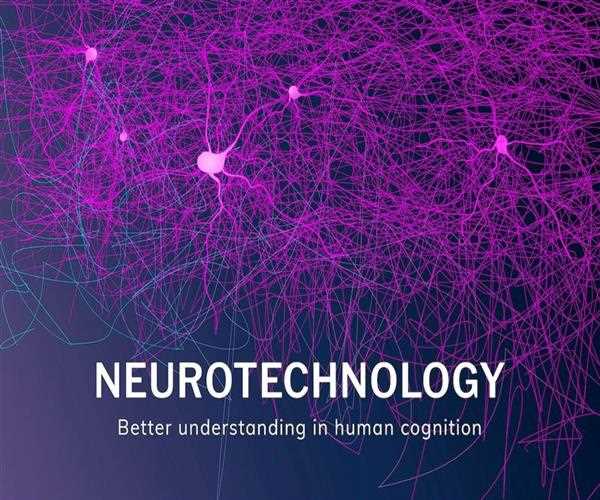
10-May-2023 , Updated on 5/10/2023 10:08:47 PM
What is neurotechnology and what are it's importance
Neurotechnology is a field of research and development that involves the use of technology to study, understand, and manipulate the nervous system. It encompasses a wide range of disciplines, including neuroscience, engineering, computer science, and physics. In this article, we will explore what neurotechnology is all about, why it is important, and its potential applications in medicine, education, and other fields.
What is Neurotechnology?
Neurotechnology refers to any technology that is used to study or manipulate the nervous system, which includes the brain, spinal cord, and peripheral nervous system. It encompasses a wide range of techniques and tools, including imaging methods such as functional magnetic resonance imaging (fMRI), electroencephalography (EEG), and magnetoencephalography (MEG), as well as invasive methods such as deep brain stimulation (DBS) and neuroprosthetics.
Neurotechnology is not a new field, but the rapid development of artificial intelligence has opened up a world of almost limitless possibilities. Neurotechnology and neuroscience work together to solve the mysteries of the brain. On the one hand, there are concerns about the applications, which may even include treating brain injuries, and on the other, there are concerns about the limitations imposed by the union of brain and machine, to the point where concepts like neuro-rights are beginning to gain popularity.
Neurotechnology also includes the development of computational models of the nervous system, such as neural networks and artificial intelligence (AI) algorithms, which can be used to simulate and predict neural activity and behavior.
Why is Neurotechnology Important?
Neurotechnology is important for a number of reasons. Here are a few examples:
Understanding the Brain: The brain is one of the most complex and mysterious organs in the human body. Neurotechnology is helping us to better understand the brain and how it functions, which can lead to new insights into brain disorders and diseases.
Diagnosis and Treatment of Neurological Disorders: Neurotechnology is also helping us to diagnose and treat a range of neurological disorders, such as Parkinson's disease, epilepsy, and spinal cord injuries. Techniques such as DBS and neuroprosthetics can help restore function to damaged or malfunctioning neural circuits.
Education and Training: Neurotechnology can also be used to enhance education and training. For example, EEG and fMRI can be used to study the brain activity of learners and identify effective teaching strategies.
Human Enhancement: Finally, neurotechnology can be used for human enhancement, such as improving memory, attention, and cognitive performance. While this raises ethical concerns, it also has the potential to enhance human potential and quality of life.
Applications of Neurotechnology
Neurotechnology has a wide range of potential applications in medicine, education, and other fields. Here are a few examples:
Brain-Computer Interfaces: Brain-computer interfaces (BCIs) are devices that allow people to control computers and other electronic devices with their thoughts. BCIs can be used to help people with disabilities, such as paralysis, communicate and control their environment.
Neuroprosthetics: Neuroprosthetics are devices that can replace or augment the function of damaged or malfunctioning neural circuits. For example, cochlear implants can restore hearing to people with deafness, and retinal implants can restore vision to people with blindness.
Diagnosis and Treatment of Neurological Disorders: Neurotechnology can also be used to diagnose and treat a range of neurological disorders, such as Parkinson's disease, epilepsy, and depression. Techniques such as DBS and transcranial magnetic stimulation (TMS) can help modulate neural activity and alleviate symptoms.
Cognitive Enhancement: Neurotechnology can also be used for cognitive enhancement, such as improving memory, attention, and decision-making. For example, transcranial direct current stimulation (tDCS) can enhance cognitive performance in healthy individuals.
Challenges and Concerns
While neurotechnology holds great promise, it also raises ethical, safety, and regulatory concerns. Here are a few examples:
Privacy: Neurotechnology has the potential to reveal sensitive information about people's thoughts, emotions, and behavior. This raises concerns about privacy and the potential for abuse.
Safety: Neurotechnology also has the potential for physical harm, particularly in invasive techniques
such as DBS and neuroprosthetics. Proper safety protocols and regulations must be in place to minimize the risk of harm to patients.
Bias and Discrimination: There is also the potential for bias and discrimination in the use of neurotechnology. For example, if a BCI is only available to those who can afford it, it could exacerbate existing social inequalities.
Ethical Concerns: There are also ethical concerns around the use of neurotechnology for human enhancement, particularly if it is only available to a select few. It raises questions about what it means to be human and whether it is ethical to enhance our cognitive or physical abilities.
Neurotechnology is a rapidly growing field with the potential to transform medicine, education, and other areas of our lives. By studying and manipulating the nervous system, we can better understand the brain and develop new treatments for neurological disorders. We can also enhance our cognitive and physical abilities, though this raises ethical concerns that must be carefully considered.
As with any new technology, there are challenges and concerns that must be addressed to ensure the responsible and ethical use of neurotechnology. However, with proper safety protocols and regulations in place, neurotechnology has the potential to improve our lives in ways we have yet to imagine.

SEO and Content Writer
I am Drishan vig. I used to write blogs, articles, and stories in a way that entices the audience. I assure you that consistency, style, and tone must be met while writing the content. Working with the clients like bfc, varthana, ITC hotels, indusind, mumpa, mollydolly etc. has made me realized that writing content is not enough but doing seo is the first thing for it.
Join Our Newsletter
Subscribe to our newsletter to receive emails about new views posts, releases and updates.
Copyright 2010 - 2026 MindStick Software Pvt. Ltd. All Rights Reserved Privacy Policy | Terms & Conditions | Cookie Policy